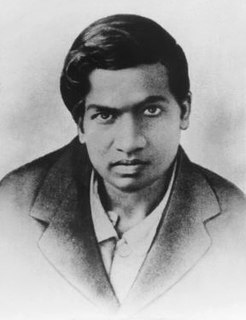A Quote by Warren MacKenzie
That [silk-screen process experience] carried over when I returned from the Army and took more graphic classes at the Institute. And Alix [MacKenzie] and I actually began to produce a line of textiles, which had silk-screen patterns on them.
Related Quotes
Exaggerating?" Silk sounded shocked. "You don't mean to say that horses can actually lie, do you? Hettar shrugged. "Of course. They lie all the time. They're very good at it." For a moment Silk looked outraged at the thought, and then he suddenly laughed. "Somehow that restores my faith in the order of the universe," he declared. Wolf looked pained. "Silk," he said pointedly, "you're a very evil man. Did you know that?" "One does one's best," Silk replied mockingly.
For me, growing up in Detroit, scarves meant cold weather. But I remember working in a store, and we had some silk scarves - like, wide scarves with fringe - and because I had seen the English rockers wearing skinny silk scarves, I took the scarves, cut and sewed them, and made them long - almost like a tie.
While asleep, I had an unusual experience. There was a red screen formed by flowing blood, as it were. I was observing it. Suddenly a hand began to write on the screen. I became all attention. That hand wrote a number of elliptic integrals. They stuck to my mind. As soon as I woke up, I committed them to writing.
I got drafted into the army and by pure chance was pushed into a silk-screen shop at this camp where I was, because they could not get training posters fast enough out of a central source in Washington, D.C. So they set up their own shop to print training posters: how to dismantle a machine gun, etc.
Twisting and wiring and stringing starching and curling, delicately painting spots and shadings on scraps of silk until what had been nothing more than a pile of brightly colored fragments had been transformed into the silk irises, forget-me-not, violets and roses that would adorn the hats of women and girls more fortunate than themselves.
The truth is, when I started to make films, I was terrified. I had a huge difference in what I was writing in the screenplay and what was on the screen after. Sometimes there was a big gap. Now, the more I have experienced, the more I do movies, the more I feel that the dream is closer to the screen. It's coming with experience.
I was 16 at the time, and I came backstage and started hanging out with them. I said, "Well, maybe you can 'vanish' the silk this way." The opening was a black stage while the "Magic to Do" song started playing. All you saw were hands, lit by Jules Fisher, and then Ben Vereen would appear beyond the hands, and at the end of the scene he would vanish a silk. The spotlight would hit a red spot on the floor where you'd see the silk on the floor. He'd pull the silk out of the floor and it became the entire set coming out of the floor.
I followed [Shoji] Hamada, because I guess Alix [MacKenzie] and I, we both saw the danger that lay in planning things out on paper and then simply executing them. And with Hamada there was a much more direct sense that the piece had happened in the process of making on the wheel, and that was what we wanted to do with our work. We weren't always able to do it, though.
The Real is ever-present, like the screen on which the cinematographic pictures move. While the picture appears on it, the screen remains invisible. Stop the picture, and the screen will become clear. All thoughts and events are merely pictures moving on the screen of Pure Consciousness, which alone is real.





























